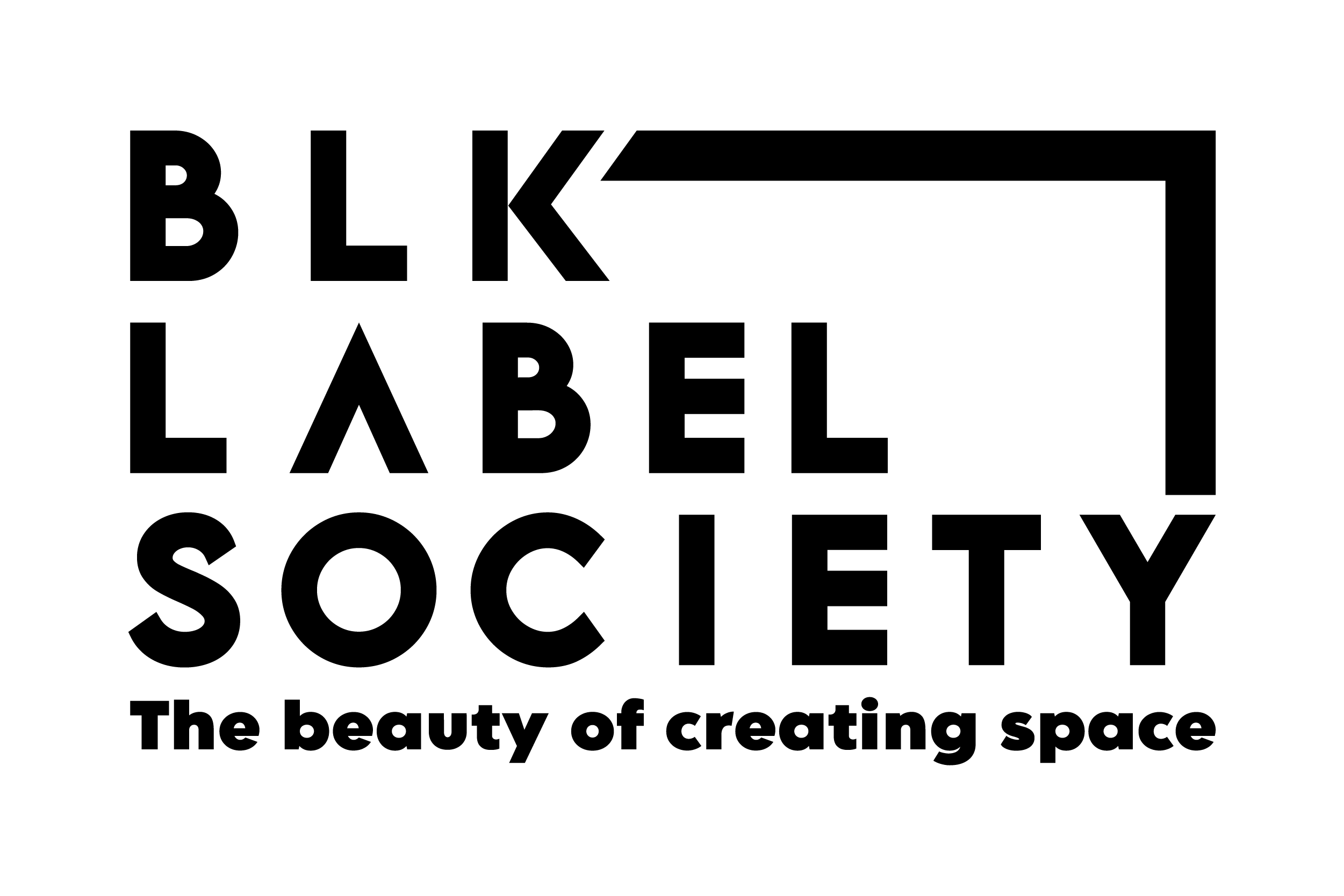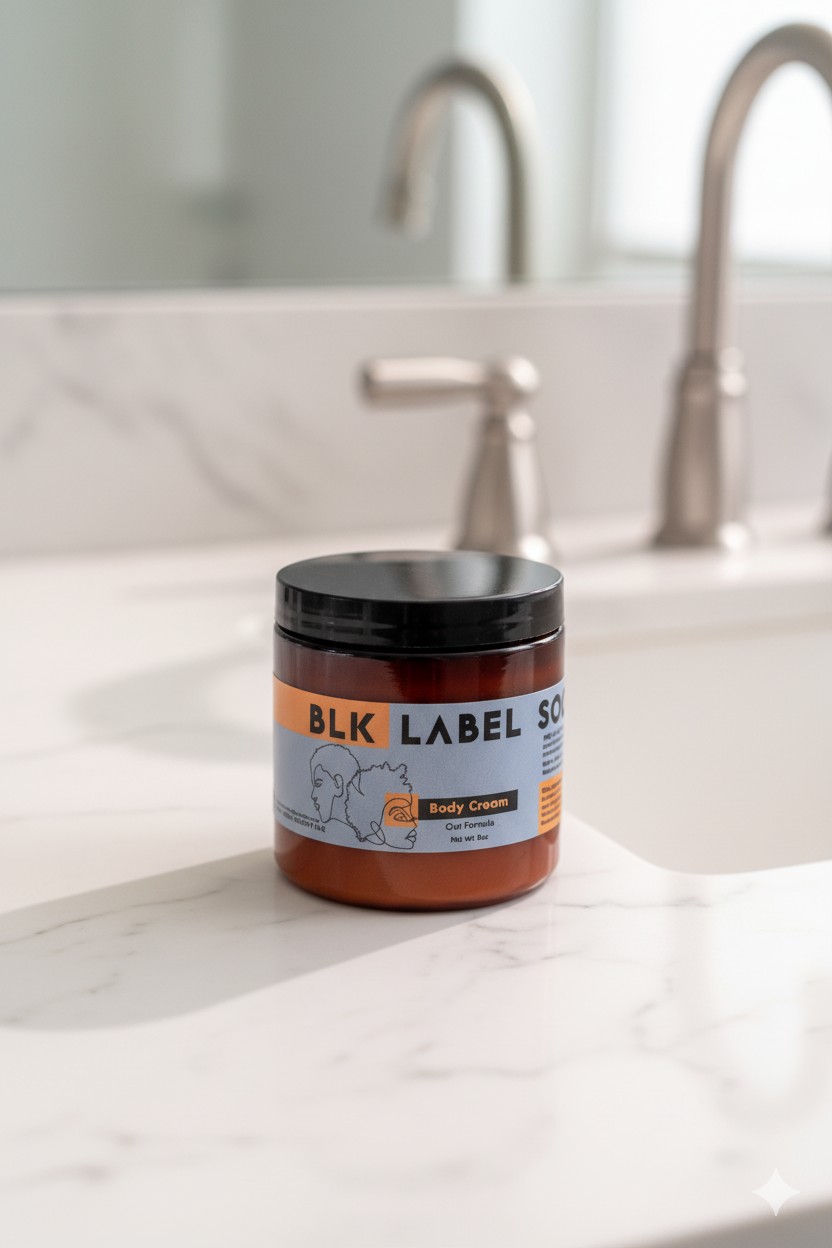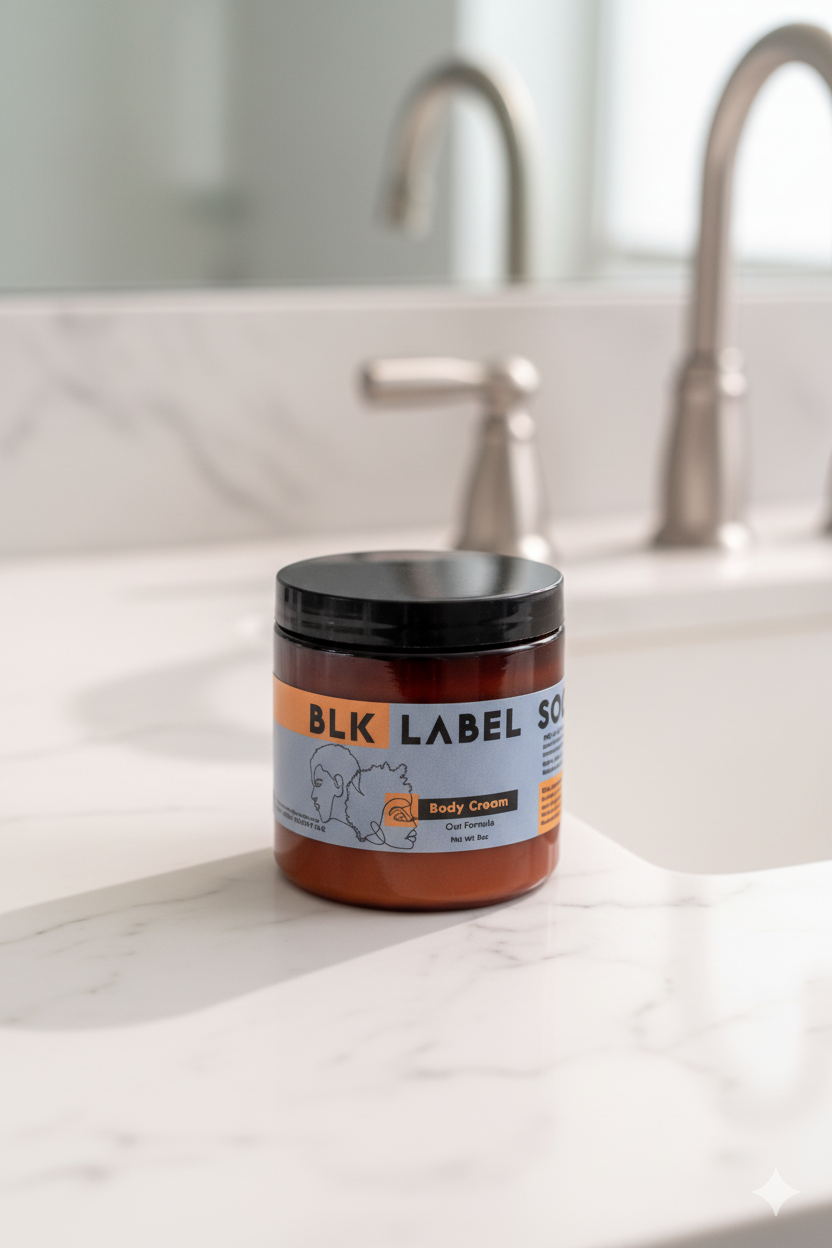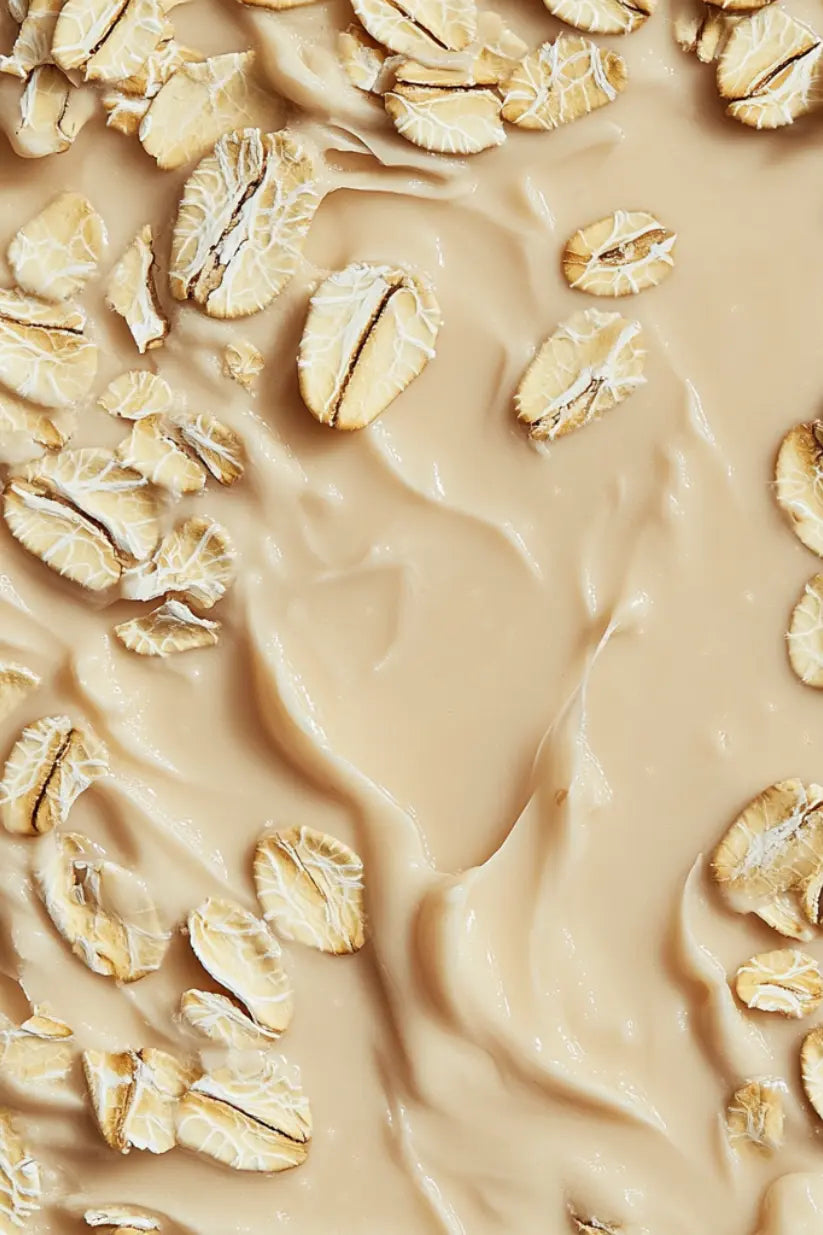Have you ever been in love with a skincare product, but wished it was a little… gentler? That's exactly how we felt about traditional 100% Raw African Black Soap.
While new skincare products seem to pop up every week, there's something deeply comforting about embracing beauty traditions that go back generations.
Raw African Black Soap isn't just another trend, it's a cherished, time-tested skin care staple honoring Africa's craftsmanship and it's appreciated all over the world.

The Craftsmanship of Raw African Soap.
Let's start by appreciating what traditional Raw African Black Soap truly is and the incredible craftsmanship behind it.
African Black Soap is a completely natural, chemical-free soap, created entirely from local ingredients specific to the region where it's made. Each country and even individual communities have developed their own unique versions based on what the resources found within agriculture.
In Ghana, soap makers might heavily rely on plantain skin and cocoa pods. In Nigeria, the focus might shift from Palm Kernel Oil and Shea Butter. Other west African regions incorporate their own local botanicals and oils. But there is no precise formula. Instead, each community creates their own version of soap.
What makes this process truly remarkable is the complete absence of synthetic chemicals, artificial fragrances, detergents or industrial additives. These communities have perfected the art of creating highly effective soap, using nothing but what Mother Earth provides. (And backed by science, might we add!)
The Art of Using Everything:
- Plantain Skins: What most would throw away becomes a key ingredient for cleansing
- Cacao Pods: The seeds become chocolate, while the pods are transformed into soap
- Palm Kernel Oil: Sustainably sourced from local communities, supporting both skincare and livelihoods
- Local Herbs and Botanicals: Each region adds its own signature ingredients ex: neem

Click here to watch how the 100% Raw African Black Soap is made
The process is incredibly labor-intensive. From the burning, to the sifting, to the drying, to the cooking and arduous stirring, each bar represents hours of skilled craftsmanship.
🫣 100% Raw Black Soap: Powerful But Sometimes Problematic
African Black Soap has stood the test of time because it works:
- Deep- cleansing that unclogs pores completely
- Soothing troubled skin with natural anti-inflammatory properties
- Evening out skin tone and reducing hyperpigmentation
- Calming razor bumps and preventing ingrown hairs
- Addressing various skin conditions from acne to eczema
- Anti-fungal benefits- kills harmful bacteria like Candida albicans
- Natural, gentle exfoliation that reveals radiant skin
But Here's the Reality for Some Users...
Despite all these incredible benefits, many people struggle with 100% Raw African Black Soap:
❌ The Texture Problem: Raw soap often contains rough plant chunks that can scratch and irritate delicate facial skin
❌ The Burning Issue: High alkalinity from potash can cause harsh stinging and burning, especially on sensitive areas
❌ The Stripping Effect: Leaves skin feeling tight, dry, and desperate for moisture
❌ The Guesswork Game: No clear instructions on how much to use or how often
❌ The Inconsistency Factor: Quality varies wildly between batches and suppliers
Sounds familiar? You're not alone.
Why We Decided to Reformulate a Household Staple
There are some people who find that African Black Soap, as amazing as it is, is too harsh for their skin type. We've heard this feedback repeatedly from our community, people who loved the concept but struggled with the reality.
That's when we asked ourselves: What if we could keep everything people love about African Black Soap while fixing everything they struggle with?
We wanted everyone to experience using African Black Soap, so we crafted our own version that honors tradition while embracing creativity.

Our Solution: The Best of Both Worlds
What We Kept (The Good Stuff):
- ✅ Authentic 100% Raw African Black Soap as part of our foundation
- ✅ Deep cleansing power that actually works
- ✅ Natural antibacterial and anti-inflammatory properties
- ✅ Gentle exfoliation for smoother skin
- ✅ Traditional benefits trusted for centuries


What We Enhanced 📈:
Our reformulated African BLK Soap integrates skin-loving ingredients such as:
- Flaxseed Infusion: Anti-inflammatory omega fatty acids
- Honey: Natural antibacterial properties plus gentle hydration
- Colloidal Oats: Soothes inflammation and provides gentle exfoliation
- Extra Shea Butter: Deep moisture and skin barrier protection
- Kokum Butter: Non-comedogenic hydration that won't clog pores
- Avocado Oil: Vitamins A, D, and E for skin repair and nourishment
- Castor Oil: Antimicrobial properties with conditioning benefits
- Kaolin Clay: Gentle detoxification without over-drying
- Aloe Vera: Calming and healing for irritated skin
🔬The Science Behind Our Approach
By integrating these additional elements, your skin benefits from:
🧈 Higher Superfat Content: Extra moisturizing oils that don't turn into soap, staying in the bar to nourish your skin with every wash
💧 Enhanced Humectants: Ingredients that attract moisture and maintain proper hydration
🛡️ Barrier Support: Components that strengthen your skin's natural protective barrier instead of stripping it away
⚖️ Balanced pH: Gentle enough for daily use without compromising effectiveness
📣 Real Results: What Our Customers Experience



💬 Common Questions About African Soap
"Can I use African soap if I have sensitive skin?"
Absolutely! Both our African Black & White Soap was specifically formulated for sensitive skin. The higher superfat content and nourishing ingredients like flaxseeds, oats, honey, etc. make it perfect for sensitive skin types.
"Will African soap work on non-melanated skin?"
Of course! While these soaps are especially beneficial for melanated skin (which tends to need extra moisture), the nourishing ingredients work beautifully on all skin tones and types.
"How often should I use African soap?"
Normally with 100% Raw Soap, you would start slowly, but with our enhanced formula, it can be used daily.
- White Soap: Gentle enough to be used daily.
- Black Soap: Gentle enough to be used daily.
"How do you make the raw soap?"
We do not make the raw soap from scratch. We source our Raw Black and White Soaps from Ghana to use in our soap formulas. CLICK HERE to see how the Raw Soap is made.
"What's the difference between your soap and raw African soap?"
Raw African soap can be inconsistent and often too harsh for daily use for some. Our enhanced versions of both the Black and White soap maintain all the traditional benefits while adding skin-loving ingredients and proper pH balance for modern skincare needs.
🙅🏾No need to dilute our soap in water
🫧Non-stripping formula is gentle enough for daily use
🫚Offer a Turmeric blend for those seeking radiance in their skin
🎨You are able to customize your own Black or White Soap
CLICK HERE TO BUILD YOUR CUSTOM SOAP
Can't decide? Why not try both! Many of our customers use White Soap in the morning for gentle cleansing and Black Soap in the evening for deeper cleaning. You can also alternate based on your skin's needs.
Build Your Perfect Soap 🎨
Still not sure which pre-made option is right for you? Create your own custom African soap!
Choose your:
- Base (white or black)
- Additional oils and butters
- Special ingredients (turmeric, flaxseed, honey, etc.)
- Fragrance or fragrance-free
- Specific skin concerns to address
Our custom soap service allows you to get exactly what your skin needs, whether that's extra moisturizing for dry skin, additional brightening ingredients, or special additions for specific skin concerns.
Beyond Cleansing: Building Your Skincare Routine
African soap is just the beginning of your skincare journey. After cleansing with your new BLK LABEL SOCIETY soap, consider:
- Moisturizing Shower Oil - for extra moisture during cleansing
- Body Creams - our Oat Body Cream or Hydrating Body Cream for post-cleansing nourishment
- Solid Body Oil - for targeted dry areas or as an overnight treatment
- Proper Soap Care - our silicone soap dish to keep your handmade bar lasting longer
📙 The Bottom Line: Options for Every Skin Journey
Whether you choose our gentle African White Soap or our enhanced African Black Soap, you're choosing tradition meets innovation. These aren't just cleansing bars, they're a bridge between ancestral wisdom and modern skincare science.
Remember:
- There's no "one size fits all" in skincare 🧩
- Your skin's needs may change with seasons, hormones, or life stages
- Both soaps can be customized to your exact preferences
- Gentle doesn't mean less effective, it means more sustainable for your skin
African soap has been trusted for generations because it works. Our enhanced versions make sure it works gently, effectively, and sustainably for your unique skin.
Ready to experience the difference? Whether you start with the mild-cleansing black soap or the ultra-gentle white soap, your skin is about to discover what it means to be truly cared for.
Want to learn more about African skincare traditions? Explore our BLS Blog for more insights into hand-made skincare, ingredient spotlights, and tips for building your perfect routine.
🛒 Shop our African Black Soap here.
Click here to watch how 100% Raw African Black Soap is made.
Black Soap Ingredients:
Olive Oil, Sunflower Oil, Flaxseed Infusion (Distilled Water, Flaxseeds), Raw African Black Soap, Avocado Oil, Sodium Hydroxide, Coconut Oil, Castor Oil, Shea Butter, Cocoa Butter, Kokum Butter, Colloidal Oats, Kaolin Clay, Honey, Aloe Vera, Sodium Lactate










